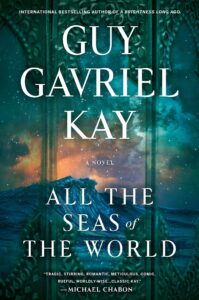 After publishing my review of Guy Gavriel Kay’s marvelous new book, All the Seas of the World (coming from Viking Press on May 17), the good people at Black Gate Magazine approached me about writing more reviews for them, something I am excited to do. So, going forward, in addition to being an author and editor, I will also be a reviewer.
After publishing my review of Guy Gavriel Kay’s marvelous new book, All the Seas of the World (coming from Viking Press on May 17), the good people at Black Gate Magazine approached me about writing more reviews for them, something I am excited to do. So, going forward, in addition to being an author and editor, I will also be a reviewer.
In my discussions with the wonderful John O’Neill, Black Gate’s award-winning editor, I made it clear that I would write honest reviews on a spectrum ranging from “this is a pretty good book” to “this is the finest book I’ve ever read.” But I would not write any negative reviews. John agreed, telling me this was just the approach he was after. And yet to many, that might seem like an odd approach to reviewing books, and so I feel it’s a position that bears explaining.
I believe reviews are most valuable when they point readers in the direction of something they might enjoy. I understand there are certain publications — Publisher’s Weekly and Kirkus Reviews come to mind — that are expected to review a wide range of books and distinguish the good from the bad. By necessity, such venues have to give some negative reviews. Indeed, early in my career I was on the receiving end of several such critiques. It’s part of the business. In a sense, with publications like those, the bad reviews actually lend legitimacy and weight to the good ones.
Black Gate Magazine, and other journals of its kind, are not like that. They do not review comprehensively. They pick out a few books in the genre and shine a spotlight on them. In effect, they say, “Hey, fantasy readers! Here are a couple of books you should check out, not to the exclusion of others necessarily, but simply because they are particularly good.” For a venue like Black Gate, writing and publishing a negative review would be gratuitous. It would be an act of singling out one book for disparagement and ridicule.
As I said to John during our discussion, I have no interest in hurting someone’s career. If he and his staff send me a book to review and I don’t like it, we will simply keep that opinion to ourselves. There’s no need to pan it; we just won’t be recommending it. Because the fact is, just because I don’t like a novel, that doesn’t mean it’s bad. I’m only one reader. My not liking a book simply means . . . I didn’t like it. Period. Full stop.
I feel quite strongly about this, because I have been on the receiving end of a gratuitously scathing review.
Yes, I know: There are unwritten rules pertaining to writers and professional critiques of our books. Writers aren’t supposed to read our reviews. Newsflash: We do anyway. Writers are supposed to ignore bad reviews. It’s harder to do than you might imagine. If writers are going to read our reviews and not ignore them, we should internalize the good ones and shrug off the bad ones. That might be even harder than ignoring them.
And as it happens, the review in question was the perfect storm of ugliness. First, it was about a book I loved and know was good. Sure, it had flaws; show me a book that doesn’t. But it was a quality book and it certainly didn’t deserve the treatment it received. Second, the review was in a high profile publication. Lots of people saw it. Third, I have good reason to believe the reviewer, with whom I had a bit of history, was acting out of personal animus. The criticism was savage and it was presented in such a way as to be especially humiliating. I won’t say more than that.
Except this. The review hurt. It sent me into a professional tailspin that lasted months. That dark period is long since over, so I am not seeking sympathy. But at the time, it did some damage to my psyche and to my creative output. And there was no reason for it. They didn’t like the book. Fine. Then ignore it. Don’t give it the benefit of a positive spotlight.
They went further. Again, fine. That’s their choice.
I will take a different tack. If I like a book I will publish a review saying so. If I don’t, if for some reason the book doesn’t excite me, or it rubs me the wrong way, I will set it aside without public comment and move on to the next.
Other reviewers are, of course, free to take a different approach. I will not judge them. But I want to write reviews for the fun of it, for the satisfaction of sharing with others my perceptions of an entertaining or moving or thrilling reading experience. I’m not interested in hurting anyone.
Keep writing!









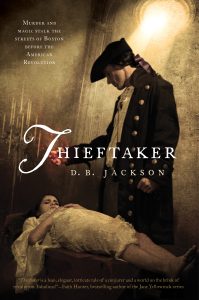 I would love to be a bestselling author. And with each new project I take on, I wonder if this might finally be the literary vehicle that gets me there. Thieftaker, Fearsson, the time travel books, the Radiants franchise. I had high hopes for all of them. All of them were critical successes. None of them has taken me to that next level commercially. So does that mean I should give up?
I would love to be a bestselling author. And with each new project I take on, I wonder if this might finally be the literary vehicle that gets me there. Thieftaker, Fearsson, the time travel books, the Radiants franchise. I had high hopes for all of them. All of them were critical successes. None of them has taken me to that next level commercially. So does that mean I should give up?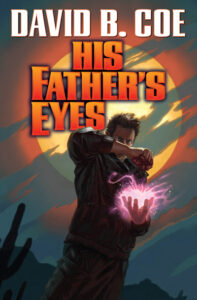 The difference between what I did with those two projects and what I am telling you not to do is this: I kept working on these books, but I also moved ahead with other projects, so that I wouldn’t stall my career. Yes, I worked for six years on the first Fearsson book. But in that time, I also wrote the Thieftaker books and the Robin Hood novelization. This, by the way, is also the secret to finding that balance I mentioned. By all means, keep working on the one idea, but do so while simultaneously developing others. Don’t become so obsessed with the one challenge that you lose sight of all else.
The difference between what I did with those two projects and what I am telling you not to do is this: I kept working on these books, but I also moved ahead with other projects, so that I wouldn’t stall my career. Yes, I worked for six years on the first Fearsson book. But in that time, I also wrote the Thieftaker books and the Robin Hood novelization. This, by the way, is also the secret to finding that balance I mentioned. By all means, keep working on the one idea, but do so while simultaneously developing others. Don’t become so obsessed with the one challenge that you lose sight of all else.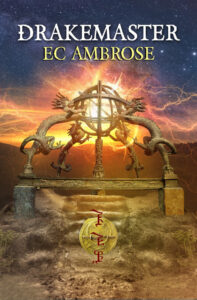 One of the great delights of writing historical fiction is the opportunity to leap into research and go bouncing off into every conceivable rabbit hole—er, to do a deep dive into a specific time, place or topic which will provide the backdrop for the story you have in mind. Unless you’re already a historical specialist in that area, doing the research is likely to consume a lot of time, attention, and other resources.
One of the great delights of writing historical fiction is the opportunity to leap into research and go bouncing off into every conceivable rabbit hole—er, to do a deep dive into a specific time, place or topic which will provide the backdrop for the story you have in mind. Unless you’re already a historical specialist in that area, doing the research is likely to consume a lot of time, attention, and other resources. And when it comes to writing, I am in something of a rut. The last novel-length piece I wrote beginning to end was Invasives, the second Radiants book, which I completed (the first draft at least) eleven months ago. Eleven months!
And when it comes to writing, I am in something of a rut. The last novel-length piece I wrote beginning to end was Invasives, the second Radiants book, which I completed (the first draft at least) eleven months ago. Eleven months!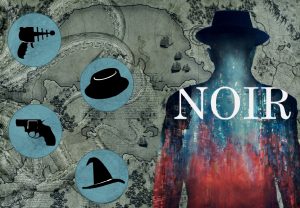 Mostly, as I say, I’ve been editing. My work. Other people’s work. The Noir anthology. I’ve been plenty busy, but I have not been as productive creatively as I would like. And I wonder if this is because of
Mostly, as I say, I’ve been editing. My work. Other people’s work. The Noir anthology. I’ve been plenty busy, but I have not been as productive creatively as I would like. And I wonder if this is because of 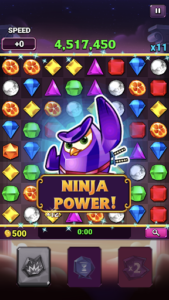 Confession #1: I play Bejeweled Blitz on my phone. I play it a lot, and I have been addicted to it for years. I have enough gold bars and coins piled up to make Warren Buffett envious. I have so many free gems wracked up that I could play for weeks straight, without pausing for meals or sleep, and never have to pay for a gem with any of those hoarded coins. It’s a bit of a sickness, actually. But I do enjoy it.
Confession #1: I play Bejeweled Blitz on my phone. I play it a lot, and I have been addicted to it for years. I have enough gold bars and coins piled up to make Warren Buffett envious. I have so many free gems wracked up that I could play for weeks straight, without pausing for meals or sleep, and never have to pay for a gem with any of those hoarded coins. It’s a bit of a sickness, actually. But I do enjoy it. It’s not enough to create my worlds and magic systems. I have to explain them to my readers in a manner that is entirely natural and unobtrusive. And — my own preference — I also have to complete my stories and my character arcs in ways that utilize my fantasy elements without allowing them to take over my story telling. My heroes may possess magic, but in the end, I will always choose to have them prevail by drawing upon their native human qualities — their courage and resolve, their intelligence and creativity, their devotion to the people and places they love. Magic sets them apart and makes them interesting. It is often the hook the draws readers to my books. But those human attributes — those are the ones my real-world readers relate to. They form the bond between my readers and my characters. And so if those are the qualities that allow my characters to prevail in the end, then their triumphs will feel more personal and rewarding to my readers. It is the simplest sort of literary math.
It’s not enough to create my worlds and magic systems. I have to explain them to my readers in a manner that is entirely natural and unobtrusive. And — my own preference — I also have to complete my stories and my character arcs in ways that utilize my fantasy elements without allowing them to take over my story telling. My heroes may possess magic, but in the end, I will always choose to have them prevail by drawing upon their native human qualities — their courage and resolve, their intelligence and creativity, their devotion to the people and places they love. Magic sets them apart and makes them interesting. It is often the hook the draws readers to my books. But those human attributes — those are the ones my real-world readers relate to. They form the bond between my readers and my characters. And so if those are the qualities that allow my characters to prevail in the end, then their triumphs will feel more personal and rewarding to my readers. It is the simplest sort of literary math. Honestly, I think “trust yourself” is good advice for life in general, but for me, with respect to writing, it has a specific implication. It’s something I heard a lot from my first editor when I was working on my earliest series — the LonTobyn Chronicle and Winds of the Forelands.
Honestly, I think “trust yourself” is good advice for life in general, but for me, with respect to writing, it has a specific implication. It’s something I heard a lot from my first editor when I was working on my earliest series — the LonTobyn Chronicle and Winds of the Forelands. You won’t get your best ideas sitting at your desk. You’ll get them in the shower. Or, when you’re driving your car, or taking a walk on a snowy day.
You won’t get your best ideas sitting at your desk. You’ll get them in the shower. Or, when you’re driving your car, or taking a walk on a snowy day. It’s happened to all of us. It happened to me writing my new book, Demon Kissed, and the next two in The Summoner’s Mark trilogy, coming from
It’s happened to all of us. It happened to me writing my new book, Demon Kissed, and the next two in The Summoner’s Mark trilogy, coming from